In the nineties, when poet Iman Mersal stumbles across Love and Silence, Enayat al-Zayyat's only novel, she is immediately hooked. Who was Enayat? Did her novel’s rejection really lead to her suicide? Where did this startling voice come from? And why did Love and Silence disappear from literary history?
Traces of Enayat, by Iman Mersal
And Other Stories 2023
ISBN 9781913505721
I have far too many books. There are thousands of them in my flat and most shelves have rows behind rows of books. It could be described as my bibliomaniacal disorder, but it is also my creation of home; the re-assembling of old companions around me. I have moved many times between many countries. The more I read, the more specific my compulsions become for reading material. It’s like the cravings I had during my pregnancies. Only licorice or fish fingers would work to settle a sense of nausea, feed my appetite, and set me up for the day. Occasionally — and this happens mainly now when I have drunk wine the day before — I have a distinct longing for a food without knowing what the food is, or if it even exists. It’s become like that for me with books. Reading Traces of Enayat, I realized that this was the book for which I had been longing, for quite some time now, though I’d never heard of either its author or the writer whose story it recounts.
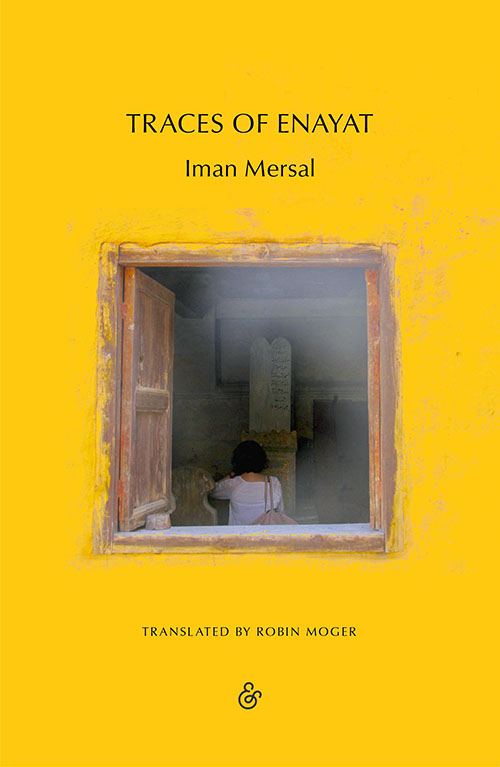
To start with, the subject: beautiful, sensitive, delicate as etched glass, Enayat al-Zayyat, the novelist at the center of the book, makes for a romantic heroine. She committed suicide in 1963 at the age of 24 before her first novel Love and Silence was published. Born and brought up in Cairo, she was educated in German and learned Arabic as a foreign language. Her novel, written in Arabic, was unique, surprising, and, according to one of the literary grandees of the time, Anis Mansour, used “unaffected phrasing.”
In 1993, thirty years after Enayat al-Zayyat died, poet and author Iman Mersal came across Love and Silence by the Ezbekiya wall, Cairo’s oldest book market, and bought it for one Egyptian pound. Traces of Enayat is the product of the 30-year spell that the novel and its author cast on her. It’s a labor of love triggered by a chance encounter.
Traces of Enayat is unusual. It does not pretend to be a straightforward retelling of a forgotten life story but is instead a multi-skilled interplay of techniques and approaches. On some level, it’s a quest for answers to endings: why did Love and Silence end the way it did? For the ending is in fact curious, concluding, according to Mersal, in “a great confusion.”
“In fact,” Mersal writes, “it’s as though there are four distinct endings set alongside one another in the space of a few pages.” Mersal considerately lists these for us. One, the last, stands out as being most peculiar, even on the basis of the little we know of al-Zayyat by page 25 of Traces of Enayat, which is “a brief description of the 1952 revolution, presented as the happy ending our narrator deserves after her long and painful journey.”
Mersal’s quest for answers — why did Enayat take her life? why did her son die young? where did the drafts of her novel, her papers, her stories, her letters end up — ultimately unearths broader questions about cultural history, the role of archives, the construction and distortion of narratives and the destruction of women’s writings. Spending time in this book is like spending years on an archaeological dig in the desert. Not just in terms of the rewards: waiting as small fragments appear in sieves, a flash of turquoise, the revelation of a mosaic floor, but also the disappointments: the wanton, barbaric destruction of invaluable craftmanship, the thefts and the dereliction of duty by assistants and guards. And in this setting, Mersal labors on, sifting away, laying out the pieces, trying to form a portrait, to create a narrative out of the intangible and the invaluable hidden in debris and dust.
The hunt is not all despair and obstruction however, for in this quest as in all quests, companions and helpers emerge in the most unexpected places. Actresses, friends, family members, obsessives, history buffs, archivists and biographers are but some of the curious, beguiling personalities drawn deftly by Mersal’s pen. Using small details, whether lines of dialogue, movements, branded T-shirts, a joke, a predilection, the turn of phrase in an email, she’s able to pinpoint and encapsulate the essence of different characters. A lesser writer could have overplayed the tragicomical, almost farcical way in which Enayat’s work, life story and legacy were distorted by those around her after her death. Instead, Mersal wields a sense of irony without resorting to caricature. The resulting narrative is a tragedy, at both a personal and a national level.
There’s a uniqueness to this work that is borne from confidence and a rigor that comes across in the attention to detail. The term “genre-defying” seems appropriate, although it’s been so overused as to be more suited for a back page blurb. Still, this is clearly a work that doesn’t sit neatly in a category with others. Mersal is at ease with telling the story as it reveals itself to her. She shifts between point of view — on one occasion she addresses materials spread across a desk as though in communion with them — and her use of the first person “I” comes and goes as she sees fit, receding discreetly on occasion to let the stories, of, for example Ludwig Keimer (1892-1957) come to the fore. She uses bullet pointed lists, quotations from letters, clips of films, emails and sources from the internet to tell this story in a way that feels both contemporary and classic at once. The gravity, complexity and febrile compulsiveness that the search for details about Enayat entails contrasts with the quotidian, the domestic rhythms of Mersal’s life as a mother, her exhausting travel schedule — familiar to all of those who have experienced migration and have families split between continents. Her story shuttles between Canada, Cairo and Mansoura. Connections, clues and confessional calls are slotted in between school runs, airport cafés and the like.
There are two books in particular that Traces of Enayat made me think of, for different reasons. The first is Francisco Goldman’s Say Her Name (2011) which was written in the aftermath of the death of his young writer wife, Aura Estrada, in a bodysurfing accident in 2006. Goldman similarly expands out deeply personal tragedy to tell the story of a nation, its history and people, of their dreams and the socio-economic exigencies that frustrate those dreams. Just as in Traces, there is the amputated career of a talented young female writer cut short. The second book is A Suite for Barbara Loden by Nathalie Léger (translated from the French by Cécile Menon and Natasha Lehrer, Les Fugitives, 2015), which centers on the woman behind the film Wanda (1970). Like Léger, Mersal has the poet’s ability to linger inside a moment, relating how it reverberates through her and transmitting that quiet drama to the reader. There’s no melodrama here, no rush to conclusions. Both Léger and Mersal use the most delicate tools to recreate, in measured, painstaking ways, the emotional hopes and torments of their protagonists. These are all books that journey towards their subjects, rather than biographies of the individuals themselves.
Traces of Enayat, particularly at the beginning, when most of the conversations and interactions are with the actress Nadia Lotfi (Paula) who was Enayat’s closest friend, are also reminiscent of the intensity of friendship portrayed in the Neapolitan novels by Elena Ferrante, The Inseparables by Simone de Beauvoir and the photographs of Umm Kulthum with her female friends when she was younger: the co-dependency, the intimacy, the adoration, the joy.

Like Mersal, I was also in Cairo in 1993. I had friends who were conducting historical research in the archives. Scandinavians, they would express their shock at finding ancient scrolls rolling around on the floor, documents loose and heaped in corners. Eleven years earlier, in 1982, during the Israeli invasion of Lebanon, the Palestinian Research Centre which contained over a hundred films and thousands of books and documents, was looted and destroyed. The contents vanished, including chairs and air-conditioning units, according to the writer Soraya Antonius (1932-2017). Some of the films re-surfaced in Israeli military archives over 30 years later. A few years after I left Cairo, in 2003, when I lived in Bahrain, during the US “shock and awe” wave of attacks on the Iraqi capital, Baghdad’s National Library was engulfed by flames, destroying tens of thousands of century-old manuscripts, books and Iraqi newspapers until nothing was left. No archive remained according to the Guardian’s reports on the bombing. It is hard to create a future if you are not aware of your past.
In Traces of Enayat there are micro destructions that do not compare to the bombing of Baghdad’s National Library but are still so painful to read that you want to skip the page to pretend they never happened. These range from the disappearance of a cardboard box at Nadia Lotfi’s house filled with correspondence with Enayat, to the destruction of Enayat’s file at the newspaper Akhbar al Yom, to the recording over the only copies of some of the “bravest and most experimental [programs] in Egyptian television history,” made between 1998-2000. They cost tens of thousands of pounds to make, but in order to save two hundred pounds — the cost of a new Betacam tape — they were deleted forever, with no copies retained. The irony is that this scant regard for record keeping occurs, in the case of Egypt, in a country which has one of the oldest national archives in the world, its Daftakhana pre-dating the UK’s Public Record Office, which was only built ten years later in 1838. Mersal refers to “the nihilism of the archive,” in the sense that Nietzsche meant when he wrote: “the historical moment in which all values are baseless,” [Mersal’s italics].
Well, as the expert who chose to destroy the file of Enayat al-Zayyat would say, what was so important about her? Why keep a record of a depressive woman who had little success with her writing and died 60 years ago? One answer could be that this is an example as to how women should never be treated by society. The extracts from the letters, journals and court records of Enayat al-Zayyat provide insight into the severe psychological fallout that such containment of an active, brilliant, sensitive person can lead to. Her ex-husband’s apparent cruelty, the difficulties she had in obtaining a divorce, her separation from her son, the threat of being placed in a location of her ex-husband’s whims in a limbo between marriage and divorce, in order to preserve his honor and to prevent her life from moving on were all products of a point in time from which, due to the tenacity and efforts of some women since, many Egyptian women have managed to escape. Enayat’s accounts provide testimony as to the reasons why we should not return to them.
The condemnation of the violence and misunderstandings female artists have endured builds throughout Traces of Enayat, becoming bolder, more on the nose and outraged as the work progresses. Mersal considers women artists’ responses to the injustices they have faced: “Some of you, I would guess,” she states rather surprisingly, “have cut your own hair at least once.” As a woman who has shaved her hair off entirely (and felt like a freak for having done so) this statement’s confidence felt chilling, almost telepathic, like a finger pointing at me across a crowded room. The — now commercialized to the point of being at risk of becoming a cliché — popularity of Mexican artist Frida Kahlo’s work that includes paintings of her shorn head, a self-inflicted wound following heartache, bears testimony as to quite how widespread the understanding of that urge is. There is no verb in English for the act of cutting off one’s own hair, but it is a little suicide of sorts, and a proclamation of refusal to be the feminine persona expected of you.
I hope that one day there will be a collection of the literary works by the writers grouped together by Mersal on page 210-11 as self-hair-cutter offers: Aisha al-Taymuriyya, Warda al-Yazji, Malak Hifni Nasif, May Ziadeh, Galila Rida, Doria Shafik, Alifa Rifaat, Latifa al-Zayyat, Zaynab Fawwaz, Warda al Yaziji, Widad Sakakini, Safinaz Kazem and Salma al-Haffar Kuzbari and Enayat al-Zayyat. Hopefully, for those with haphazard Arabic, like me, there will also be translations.
A word here on the translation. Robin Moger is one of the most versatile, fluent and adaptable Arabic-English translators working today. In Traces of Enayat, he manages to capture a variety of different registers, voices and tones flawlessly. He has a knack for humor and a lightness of spirit. I appreciated that he didn’t translate the word “Allah” to “God” when Mersal refers to a presence that she feels is guiding her, as with Enayat. A small touch, but one that sidestepped the narrator away from piety and made her, within the context that the word was used, sound grounded and of the place, part of the circumstances and impulses she was caught up with and trying to convey.
At the London launch of Traces, Mersal mentioned that her publisher encouraged her to write a novel, which she refused to do. She was right to stick to her guns and seek inspiration instead in the hybrid space of “creative nonfiction.” The distinction between fiction and nonfiction does not exist in the same way in classical Arabic literature, she explained. She also sought inspiration in the works of WG Sebald. There are other writers who have caved to publishers’ pressures to novelize their stories and spoiled, in my opinion, otherwise fascinating accounts. I am thinking here of Reading Lolita in Tehran (2003) by Azar Nafisi, which confused a series of fascinating lectures with an attempt at a novelistic framework, but there are others where the unresisted hand of the agent or publisher appears to be at work.
If I were to critique this book, it would only be to ask for a bit more. It would have benefitted from showing some of the family trees rather than simply describing them. I found these hard to follow. A dramatis personae, or more embedded reminders as to who particular personalities are, may also have helped those readers whose memory for names is not as astute as they would like it to be. Both of these are small points against what is a formidable achievement. Traces of Enayat is an extraordinary, beautiful book which I hope will lead to many others written in the same vein, with covert or overt aspirations for better laws for women, access to publishing houses and promotion of their writing. Abolition, too, of the destruction or abandonment of the archives. We need to pave the way for the future through reimagining visions of the past. May our female writers and our histories be treasured, not trashed.






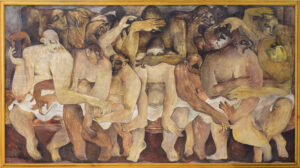





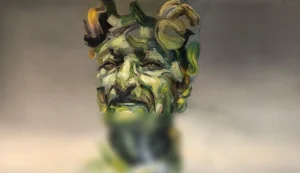





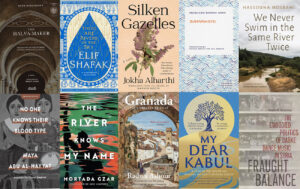





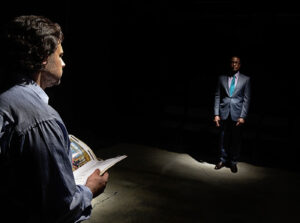


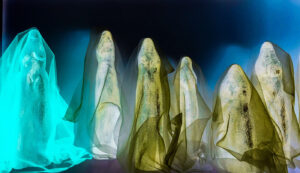












































Best book review I have ever read ! Selma weaves words into an exquisite trapestry!